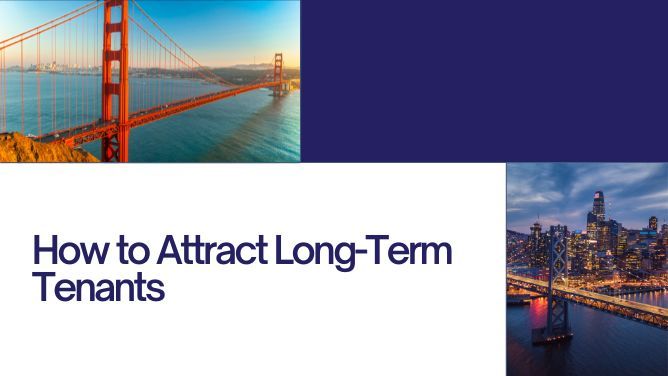WHAT IS A 1031 EXCHANGE? The San Francisco Investor’s Handbook

It seems like everyone is selling property in today’s market, and maybe you’re thinking about it, too. But, selling a rental property means paying taxes. While many investors simply consider that to be the cost of doing business, you don’t have to be so quick to pay that tax bill.
There’s a way to grow your
investment portfolio and delay the payment of any capital gains taxes. The 1031 exchange allows investors to defer taxes when they reinvest the earnings from one sale into another purchase.
This is an excellent way to stay in the San Francisco market and reduce your tax liability.

1031 EXCHANGES COME WITH STRICT GUIDELINES
There’s a lot you need to know about this tax vehicle, however. While a 1031 Exchange allows you to keep more of the money you’ve earned and establish a more effective long-term investment strategy, you have to follow its specific rules and timelines. We’ve developed this guide to the process.
1. HOW TO USE THE 1031 EXCHANGE (AND WHY)
To defer taxes on the sale of your rental property, you must buy a new investment property – or several properties – that are similar to the one you’re selling. Similar does not mean exactly the same. You can sell one small apartment building and buy three units in a larger building, for example. Or, you can sell one apartment building and buy two single-family homes. There are options. As long as it’s one income-producing property for another, you’re off to a good start.
Investors love this option when there’s a large tax exposure from the sale of investment property. Perhaps you bought a unit for $600,000 a decade ago, and now you’re able to sell it for over a million dollars. The profit will be taxed. In this situation, a 1031 exchange will save you quite a bit.
You will also benefit from the 1031 Exchange if your rental property is older and in constant need of maintenance. Selling a home with ongoing repairs will allow you to reinvest the proceeds into a newer property that will provide better cash flow.
2. STEPS TO A SUCCESSFUL 1031 EXCHANGE
Specific steps need to be taken when you want to defer your taxes with a 1031 exchange.
Make sure your property qualifies for this benefit. This tax program is meant for investment homes. You cannot sell the home you’ve been living in and reinvest the money to buy a vacation home.- You’ll need to exchange with a similar property or properties. The new property you choose must have a value that is the same or higher than the original property. If you walk away from the exchange with any profit, they will be taxable.
- Find one property, two properties, or three to exchange with your current property.
- Use an intermediary and don’t take any of the cash from the sale of your property. The intermediary will hold your funds until they can be reinvested in your new purchase. Ask your San Francisco property managers for a referral to an intermediary.
3. GET YOUR TIMING RIGHT
There are critical deadlines included in a 1031 exchange, so pay attention to the timelines.
You’ll need to identify a replacement property within 45 days of selling your original property. This doesn’t mean you have to buy it - you simply must identify it.
Then, you have 180 days to close on the new sale. The entire exchange must take place within 180 days (meaning you don’t have 45 days plus 180 days – the clock does not reset).
Deferring Isn’t Forever
The 1031 Exchange is one good way to keep all of the money you earn off the sale of an investment. But, it’s not a completely tax-free option. You are technically deferring the payment of your taxes, not avoiding them completely. However, the current law allows you to do a 1031 exchange as many times as you want.

SAN FRANCISCO PROPERTY MANAGEMENT AND TAX BENEFITS
There are a lot of tax benefits to owning rental property, and the 1031 exchange is only one of them. If you’re not already working with a great CPA and an experienced San Francisco property manager, now might be a good time to consider it. We have helped our clients through the 1031 exchange process before, so contact us if you need help. Our 30 years of experience can make a difference.
To hear more about our leasing and management services, please
contact us at BanCal Property Management. We also welcome your comments, questions, and suggestions for topics you want to learn about, so please share those too. Let us know what you’d like to hear about when it comes to effectively managing a rental property in San Francisco.








